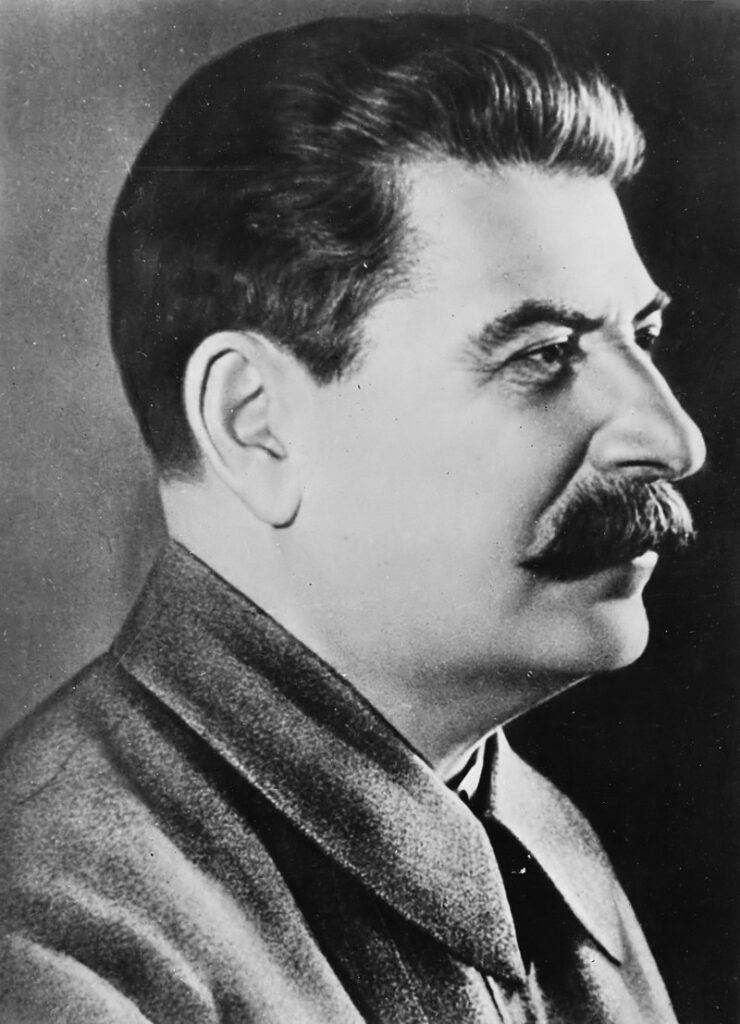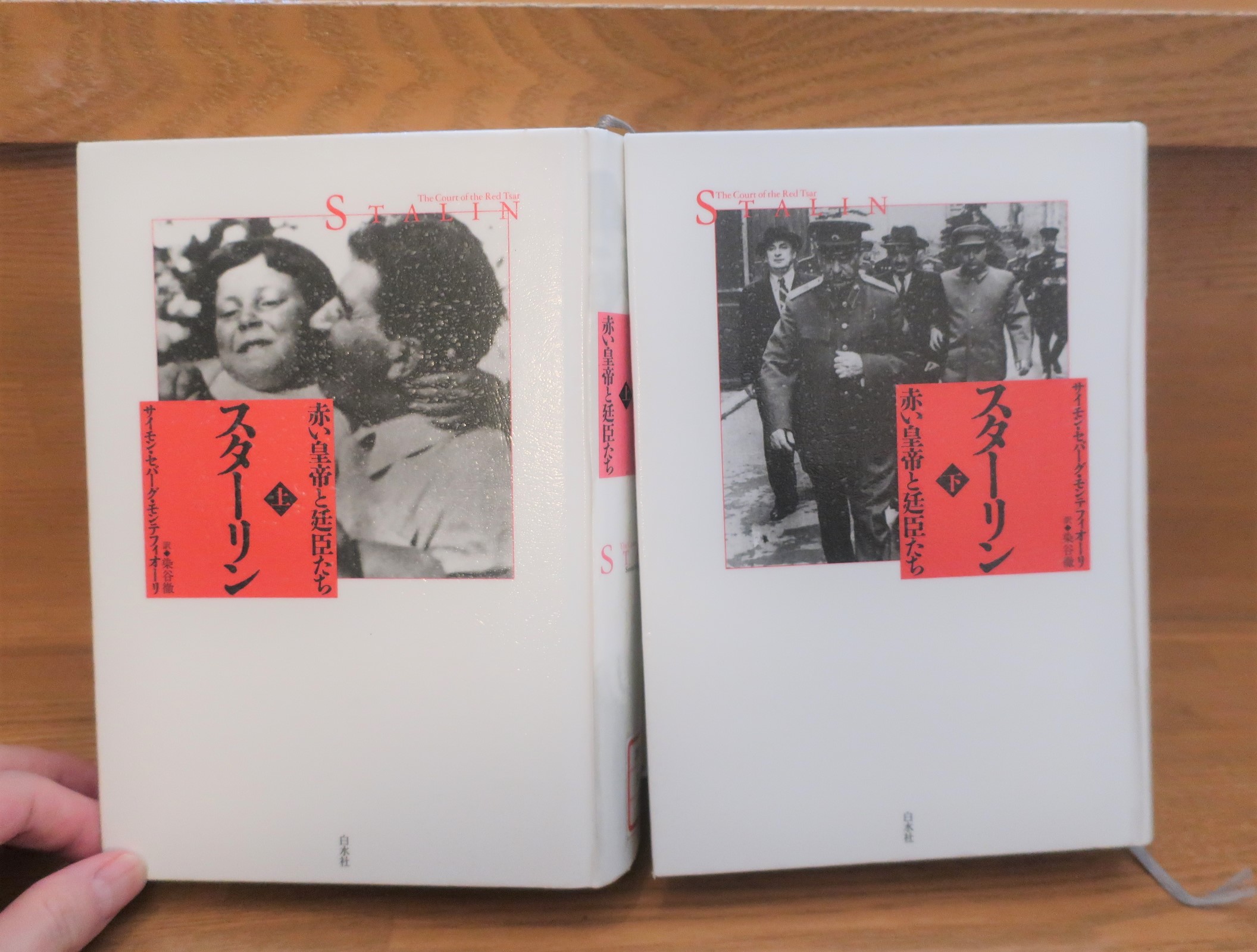Table of Contents
Stalin during the Russo-German War and the hellish revenge of the Soviet Army against the Nazis Read Biography of Stalin⑸.

Joseph Stalin (1878-1953)Wikipedia.
Continued saImon Seberg MontefioriworkStalin, the Red Czar and His Courtiers.Here are some of the memorable passages from the From here on, this will be the lower part of the book.
Enactment of a decree forcing soldiers to fight
Stalin was frightened by the great siege campaign that the Germans had launched in the southern region. He then enacted a caustic decree that tried to whip up fear and make the Red Army soldiers fight.
In the first week of the war, Stalin issued NKGB Order No. 246, which stated that if a soldier was taken prisoner, his family would also be punished, but this time he promulgated this military order as a decree. This time, however, he promulgated this military order as a decree, the infamous Decree No. 270.
In enacting this decree, Stalin asked Molotov, Bujonny, Voloshilov, and Zhukov to sign it. Some of them were not present, but nevertheless signed in favor of the decree.
That, after all, was the traditional Bolshevik way. Decree No. 270 would cost the lives of millions of innocent soldiers and their families. This included Stalin's own family.
Hakusuisha, Simon Seberg Montefiori, translated by Toru Someya, Stalin: The Red Czar and His Courtiers, p. 45
Some line breaks have been made.
The war between Germany and the Soviet Union began, and in order to counter the powerful German army, Stalin enacted certain decrees. These were the above-mentioned NKGB Order No. 246 and Decree No. 270.
This makes it equivalent to the Soviet soldier having his family taken hostage by the government. If you don't want your family killed, fight. If you run away, you and your family will all be executed. If you do not fight to the death and are captured by the enemy, your family will be arrested. So fight to the death.
Thus, the Soviet Union continued to send soldiers into battle.
Stalin reading the biography of Ivan the Terrible
Stress began to take its toll on Stalin's body. There was no way to hide his sudden aging. Now, "Stalin was shorter, more tired, with chapped cheeks, ...... his eyes had lost the sparkle of olden days, and his voice had lost its tone.
Khrushchev was astonished to see Stalin, who was now "skin and bones". On a freezing cold day, when Andreyev was strolling through the Kremlin courtyard with his daughter Natasha, the only figure he saw was Stalin walking along the chest wall.
As usual, he wore light clothing, no gloves, and his face was pale from the cold. In his spare time, Stalin spent a lot of time reading history books. In the margins of a new edition of "The Biography of Ivan the Terrible" published around this time, he wrote such phrases as "This man is my master" and "We will win sooner or later. At the time, Stalin's mood oscillated between Spartan barbarism and hysterical screams.
Hakusuisha, Simon Seberg Montefiori, translated by Toru Someya, Stalin: The Red Czar and His Courtiers, p.75
Some line breaks have been made.
Previous Article(4) The connection between Stalin and Ivan the Terrible: a social system founded on bloodshed."But as I mentioned, Stalin compared himself to the 16th century despot Ivan the Terrible.
Although Ivan the Terrible ruled the country with his overwhelming charisma and tyranny and made Russia a powerful nation, he was mentally unstable. He was so volatile that in an argument he lost his temper and beat his beloved son to death.
Stalin had also become a very unstable person mentally, and this may have been one of the reasons why he preferred Ivan the Terrible.
Revenge like a hellscape of Soviet troops fighting back.
In the final stages of the Great War, the formation of the German-Soviet war was reversed, and Soviet forces began to push back the Germans.
The Second and Third Belarusian Armies were pouring into East Prussia. East Prussia was the German mainland. The frenzied revenge had begun.
Within a few months, two million German women were raped. Russian soldiers attacked not only German women but also Russian women who had just been liberated from Nazi concentration camps.
Stalin paid little heed to this, he said to Giras.
'Of course you've read Dostoevsky, haven't you? Then you know how complex the human soul is. ...... Imagine how soldiers who had lost loved ones fought their way from Stalingrad to Belgrade over the corpses of their comrades in arms and saw the devastation of their homeland devastated by enemy fire for thousands of miles. Imagine how they would have felt. How would they normally react? Is it any wonder that after such a horrific experience they would want to have a little fun with the ladies?"
Hakusuisha, Simon Seberg Montefiori, translated by Toru Someya, Stalin: The Red Czar and His Courtiers, p.216-217
What did you all think when you read this passage?
Is this the reality of war...
If so, if we are involved in a war now, will these revenge fights be repeated................................it is just too horrible to describe....
And this is also where we can see how Stalin viewed Dostoevsky. He used Dostoevsky to justify his atrocities. Dostoevsky did indeed depict the darkness of mankind, but did he write to affirm it? But did he write to affirm it? I definitely do not think so.
However, whatever Dostoevsky's intentions, the fact remains that in reality Stalin used him. This is something we must not forget in facing Dostoevsky in the future.
The atomic bombing of Hiroshima and Stalin
On August 6, 1945, the United States dropped an atomic bomb on Hiroshima. Fearing that he might miss his prey, Stalin immediately decided to enter the war against Japan.
But the devastation in Hiroshima had a far greater impact than Truman's warning. Svetlana, who was visiting Kunzevo that day, complained that "everyone was running around looking busy and no one was bothering me.
War is barbaric," Stalin commented. But the atomic bomb is barbaric beyond measure. But the atomic bomb is barbaric beyond measure, and there was no need to use it. Japan's defeat had already been decided!"
Stalin was convinced that the real target of Hiroshima was him. 'Intimidation by means of the atomic bomb, that is the American way' (omitted).
Hiroshima shook the whole world. The balance is lost," Stalin told them. But we will not let the Americans have their way. Now Stalin understood that the nuclear development project was of the highest importance.
Hakusuisha, Simon Seberg Montefiori, translated by Toru Someya, Stalin: The Red Czar and His Courtiers, p.254
It would be very interesting to know what Stalin said in response to the atomic bombings.
And Stalin himself said, "The atomic bomb is barbaric beyond measure. Moreover, there was no need to use the atomic bombs. Japan's defeat was already decided! The fact that Stalin himself said, "The atomic bombs were beyond barbaric and unnecessary. Immediately after this, Stalin rushed to invade toward the Northern Territories. It is a painful reminder of what it means to lose a war...
be unbroken
Next Article.
Click here to read the previous article.
Click here for a list of "Reading Biographies of Stalin" articles. There are 14 articles in total.
Related Articles





































